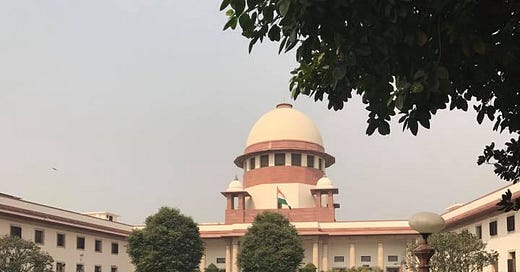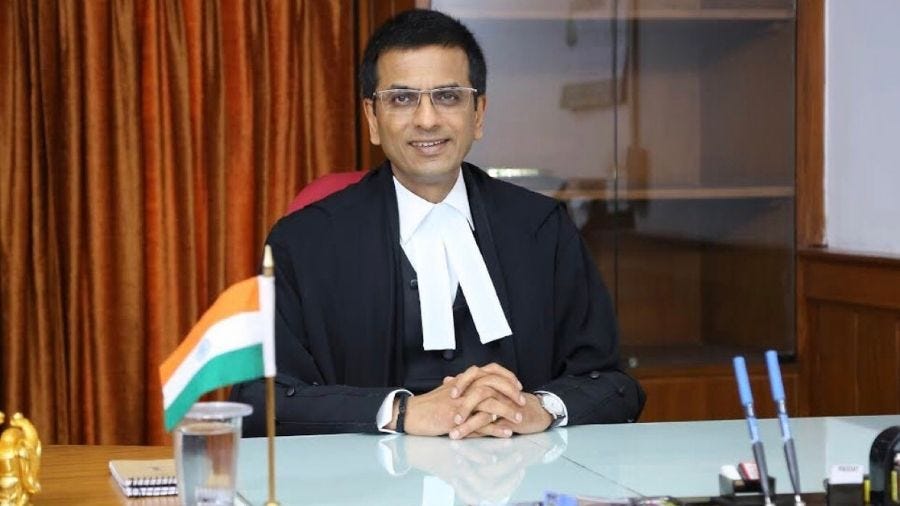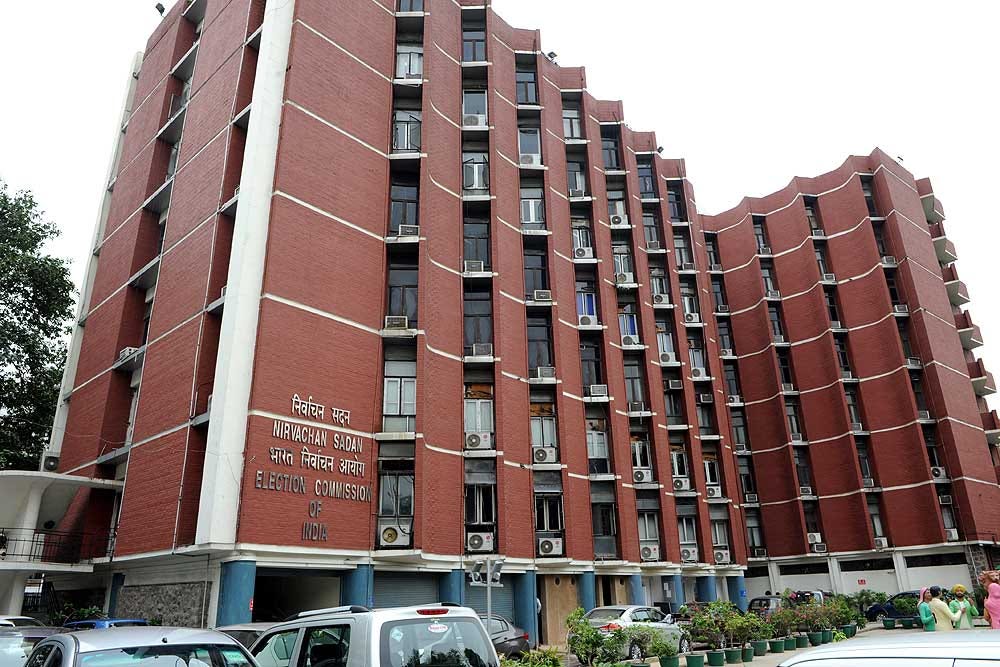Electoral Bonds Case : Supreme Court to Pronounce Judgment Today
The 5-Judge Constitutional Bench of the Supreme Court, headed by the CJI DY Chandrachud, is set to deliver its judgement today. The judgment had been reserved by it in the first week of November 2023.
Introduction: The Debate at the Forefront
The "Electoral Bonds Scheme" finds itself at a pivotal juncture, enveloped in widespread debate and under the legal microscope. With the Supreme Court of India's 5-Judge Constitutional Bench, led by Chief Justice DY Chandrachud, having wrapped up a thorough hearing in the first week of November 2023, the country awaits with bated breath. The Scheme's destiny is shrouded in anticipation, as the Bench assembles to deliver its verdict in the next few hours, setting a precedent for India's political financing1.
The intense deliberations of the Supreme Court have drawn impassioned arguments from esteemed legal minds, casting a spotlight on the Scheme’s significant ramifications for the democratic fabric of India. At the heart of this legal discourse is the tension between the confidentiality of political donors and the electorate's entitlement to transparency in the financial underpinnings of major “recognised” political entities. This juxtaposition forms a complex puzzle, symbolising the intricate balance of democratic principles at stake.
The Individual Donor: A Case for Privacy
The current framework governing political donations stipulates stringent KYC norms for citizens wishing to donate amounts exceeding Rs 20,000 to political entities. In practice, this regulation opens the door to potential political retribution, deterring many from engaging in what is fundamentally a democratic right. Moreover, the legal ceiling for cash donations is set at Rs 2,000. Therein lies an imbalance: individuals face the prospect of their financial identities being laid bare for modest contributions, while larger corporate donors can totally erase their financial footprints. This disparity raises a critical concern, especially in an environment where data privacy laws in India remain nascent and somewhat nebulous.
Corporate Anonymity: A Closer Look
The façade of anonymity surrounding the purchasers of electoral bonds merits a thorough scrutiny. Ostensibly, these bonds provide privacy to high-net-worth individuals and corporations, yet it's widely acknowledged that these bonds could be traded on secondary markets. This trading facilitates cash exchanges, veiling the true source and the ultimate beneficiary within the political arena. The reality is that the last holder of the electoral bond, the one who actually donates to the political party, might be a far cry from the original purchaser, with their identity a mystery to all but the recipient party, which is expected to return the favour without leaving a paper trail. Moreover, when such donations become tax-deductible, it results in an ironic twist where the state, supported by taxpayer funds, ends up underwriting these anonymous political donations at the prevailing maximum marginal income tax rate.
Discriminatory Dimensions of the Scheme
The current framework of the Electoral Bonds Scheme is seen to tip the scales in favour of “recognised” political parties and significant donors, to the detriment of smaller "registered" political parties and individual contributors. Such disparity not only contravenes the ethos of equitable participation in the political process but also poses a risk of distorting the electoral playing field in favour of those with deep pockets. This could potentially be at odds with the essence of Article 14 of the Indian Constitution, which enshrines the right to equality before the law and equal protection of the laws within the territory of India.
Revisiting the Framework: A Matter of Democratic Principle
The Supreme Court's deliberation on the Electoral Bonds Scheme transcends the binary debate of balancing donor privacy with transparency, veering into the realm of the systemic implications of anonymous capital flowing into the political arena. There lies a lurking concern that such capital, untraceable in its origins, could be tainted with foreign influence or questionably sourced domestic funds. This prospect poses a grave threat to the sanctity of India's electoral democracy, risking not just contamination of the democratic process but also the potential subversion of its very foundation.
Summing Up: Upholding the Democratic Ethos
In conclusion, while discourse on the Electoral Bonds Scheme often orbits the dialectic of privacy rights and public entitlement to information, the heart of the matter for the Supreme Court's forthcoming judgment lies deeper. It is crucial that the adjudication scrutinises the potential of anonymous donations to sully the electoral mechanism. Beyond reconciling conflicting rights, the pivotal question is whether such a scheme compromises the foundational democratic ethos of India. As the Apex Court contemplates this verdict, it must hold the integrity of the electoral process sacrosanct. This is more than a legal mandate; it is a democratic imperative, a cornerstone to ensuring the electoral arena remains a reflection of transparency and fairness, integral to the Constitution's vision.
Over to the Supreme Court of India.
Electoral Bonds— Supreme Court hearing begins on 31st October
Electoral Bonds Scheme: Supreme Court to commence hearing from 31st October The Supreme Court has scheduled the commencement of hearings for the various petitions challenging India's "Electoral Bonds Scheme" on October 31, with expectat…








